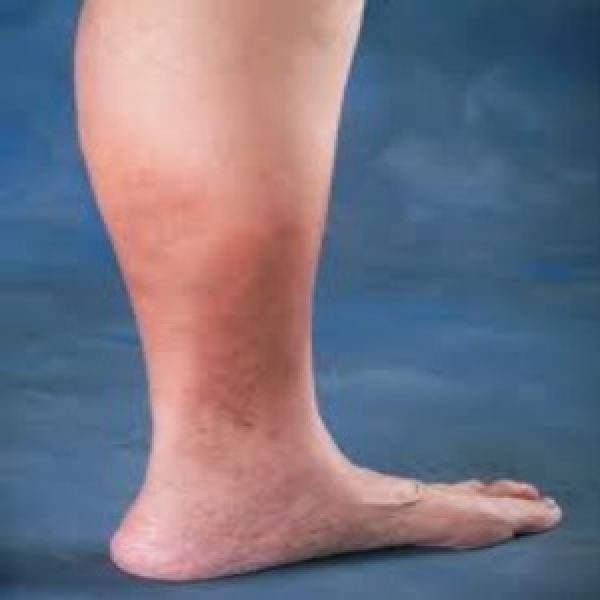
The holidays are right around the corner, which means many will be traveling to visit their loved ones, or for those of you who are snow birds you’re heading home to the warm weather down south. Many individuals choose air travel to reach their destination. For those who suffer from venous insufficiency or lymphedema this can be a painful process. Your lymphatic system endures an extreme amount of pressure when flying at high altitudes. Also, the risk of getting chronic edema rises for those who have already undergone an invasive procedure or radical cancer surgery.
Keep Circulation Flowing
Trying to get home for the holidays isn’t always easy when you have a painful swelling in your limbs, and flying may worsen symptoms after enduring extreme pressure. The Lymphatic system is a major player in the body’s immune process, it’s important to keep your circulation flowing with good health. After going under the knife for various surgeries, having joints replaced, or lymph nodes removed your bodies lymphatic system isn’t going to be working at its top performance.
Some of the most common conditions where edema is a symptom include venous insufficiency, post operative trauma, infection, and lymphedema. Some physicians may overlook the cause of your swelling and treat it with a diuretic. Swelling in a limb is due to the excessive amount of fluid in your cells tissues or organs. Finding the origin of the edema is vital to getting the proper medical care. Diuretics may be useless and harmful over time if your edema is a symptom of chronic venous insufficiency or lymphedema. Diuretics draw fluid from your venous system that your body must have in order to balance the continual fluid deposit from your arterial capillaries; if the needed interstitial fluid is not present because you are taking a diuretic this will only aggravate your lymphatic system which may lead to additional fluid retention.
Deep vein thrombosis is another medical condition that may develop from cramping that air travelers endure under high altitudes. Some individuals may develop blood clots in their legs over time from flying. Those who develop small blood clots may not experience any complications, leaving them untreated. This is a life- threatening medical problem that can be prevented through compression therapy. The sequential compression pump sleeves squeeze the muscles of the legs or arm as they inflate. Then in a sequential pattern they deflate and the muscles are able to relax. This pumping action promotes the circulation of the blood preventing blood clots from occurring.
A Non-invasive Treatment Option
With a compression pump, your lymphatic system gets assistance through a massaging action that gently moves the fluid naturally from your limbs back into the rhythm at which the lymph system circulates. Each chamber of the sleeve moves the fluid underneath the skin in the direction of the lymphatic flow enabling the body to get rid of the fluid and waste build up.
Main purposes of Lymph Nodes
The lymphatic system is the anatomical underpinnings of the immune system, through a complex network of the lymphoid organs, tissues, and lymph nodes. Your lymph nodes have two main purposes which are to filter lymph then transport it back to the blood stream, and activate the immune system. The lymph nodes are found strategically placed throughout the whole body, so when a site encounters antigens or something foreign a red flag is drawn, and an attack is mounted. This mean’s when your lymphatic system isn’t functioning properly it becomes a gateway for infections to attack the body without defense. Any swelling is an indicator for lymphedema.
Different Stages of Lymphedema
There are different stages of edema that correspond with the severity of the condition. Pitting edema is also known as Stage I. Stage I lymphedema is characterized by swollen soft tissue. You can determine this by pressing on the area where your skin if experiencing swelling. If an indentation still appears after pressing on the particular area on the limb than this is an indication that the lymphedema has progressed to Stage II or Stage III. Stage II lymphedema the issues are no longer soft and they have become fibrotic (hardened). Stage III lymphedema the damage has been done and the tissues have hardened. At Stage III lymphedema treatment can reduce swelling but the damage is irreversible. It’s important to receive treatment before progressing to the later stages of lymphedema.
Benefits of a Compression Pump
The compression pump is a Medicare approved treatment option, along with many other private insurance companies. The compression pump is an in home device that enables individuals to use at their convenience without having to leave the home for costly and time consuming appointments. The compression pump will improve scar formation for those who are experiencing difficulty healing after surgery by increasing the circulation that brings all of the main components in the healing process to the incision site or infected area.
We Can Help if You Experience any of the following symptoms
- Swelling in your legs or arms
- A feeling of heaviness or tightness
- A restricted range of motion
- Aching or discomfort
- Recurring infection
- Hardening or thickening of the skin on your arms or legs
Contact Acute Wound Care LLC today, through patient education and compression therapy we can provide a better quality of life for you!
You May Like

Cervical Cancer and Limb Swelling
CLICK HERE to read our full article about cervical cancer and limb swelling.

Best Practices for the Prevention and Treatment of Venous Ulcers
Brian Kunimoto, MD, FRCPC; Maureen Cooling, RN, ET;Wayne Gulliver, MD, BMSc, FRCPC; PamelaHoughton, BSc, PT, PhD; Heather Orsted, RN, BN, ET; and R. Gary Sibbald, MD, FRCPC In recent years, the Canadian Association of Wound